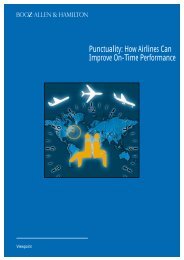The sentence
The sentence
The sentence
You also want an ePaper? Increase the reach of your titles
YUMPU automatically turns print PDFs into web optimized ePapers that Google loves.
‘Still’ and ‘yet’<br />
1. Still and yet mean ‘until now’ and we often use them with the present perfect.<br />
2. We use still to emphasize continuity, mainly in affirmatives and sometimes in questions:<br />
I’m still waiting for may new passport. Is Martha still in hospital?<br />
We can also use still in the negative for special emphasis: John still hasn’t written to me.<br />
Still has the same position in a <strong>sentence</strong> as adverbs of frequency.<br />
3. We use yet mainly in questions and negatives and often put it at the end of a <strong>sentence</strong>:<br />
Has your new passport arrived yet? – No, not yet. It hasn’t arrived yet.<br />
‘Already’ and other adverbs of time<br />
1. Already means ‘before now’ or ‘so soon’. We use it in questions and affirmatives, but not<br />
negatives. We can put it in the middle of a <strong>sentence</strong> or at the end:<br />
Have you already finished lunch? Have you finished lunch already?<br />
This machine is already out of date. It’s out of date already.<br />
2. Other common adverbs of time are: afterwards, at last, just, lately, now, once, recently,<br />
soon, suddenly, then, these days. We often use these adverbs in story-telling.<br />
C. Adverbial phrases of duration<br />
‘Since’, ‘for’ and ‘ago’<br />
1. ‘Since’ + a point of time answers Since when? We use since with the present perfect to<br />
mark a period lasting till now: I haven’t seen him since January.<br />
2. ‘For’ + period of time answers How long? We use for to refer to periods of time:<br />
- in the past: My wife and I worked in America for five months.<br />
- in the future: John will be staying in New York for two weeks.<br />
- in the present perfect: I’ve known Susan for five years.<br />
3. Period of time + ‘ago’ answers How long ago? and marks the start of a period going back<br />
from now. We use ago with the simple past: I arrived here two months ago.<br />
‘Till’ (or ‘until’) and ‘by’<br />
1. Some verbs naturally refer to ‘periods of time’ or ‘continuity’<br />
e.g. learn, lie, live, rain, sit, sleep, stand, stay, wail and work.<br />
2. Till (or until) and by mean ‘any time before and not later than’.<br />
We cannot use by at all with these ‘continuity’ verbs. (Not *I’ll wait here by 5 o’clock.*)<br />
We can only use till (or until) with these verbs:<br />
I’ll wait here till (or until) 5 o’clock. I won’t wait here till (or until) 5 o’clock.<br />
3. We use by with verbs which do not refer to periods of time.<br />
We can think of these as ‘point of time verbs’: e.g. arrive, come, finish, go, leave:<br />
She will arrive by 5. She’ll arrive at 6.<br />
She won’t arrive by 5. She’ll arrive at 6.<br />
4. We use till or until with ‘point of time verbs’ only in the negative.<br />
She won’t arrive till (or until) 5. (But not *She will arrive till 5.*)<br />
40




